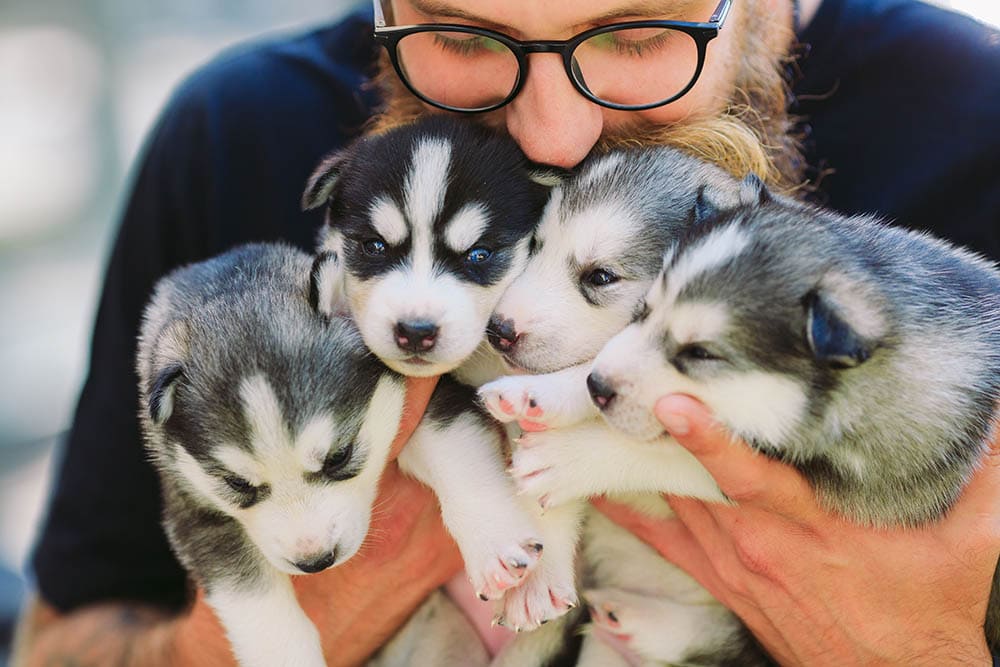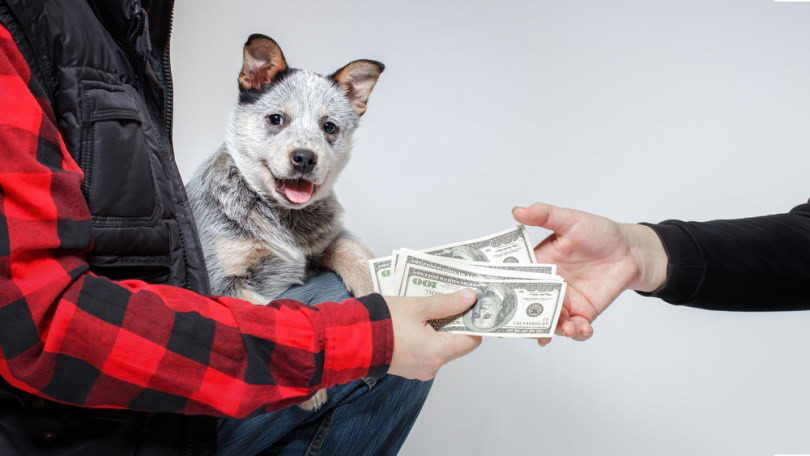VET APPROVED

The information is current and up-to-date in accordance with the latest veterinarian research.
Learn more »You’ve decided to add a pet to your family—a new and exciting chapter is about to start for everyone in the household. Adding a pet is not to be entered into lightly, and there are many factors you’ll need to consider before making a decision. You may want to adopt, or you may want to go to a breeder.
Regardless of the type of animal, you need to ensure the breeder is legitimate and not someone looking to make a fast buck in lieu of the pet’s health and safety. In this guide, you’ll discover tips to spot a responsible breeder and what to do if the breeder isn’t trustworthy.

The 7 Tips for Finding a Responsible Breeder
1. What makes a breeder responsible?
For starters, a responsible breeder will have a clean facility and treat the animals humanely and as a part of their own family. Your potential pets will have plenty of space and not be locked up in small kennels, ensuring all of their needs are met. A responsible breeder will have extensive knowledge of the breed they raise and their common health problems, a close relationship with their vet, and a policy of testing all of their animals’ health. They will also get breed-specific genetic tests done to rule out any common hereditary health conditions that may show up in the offspring. If you ask to visit the home where they breed the animals (which we highly recommend), they should encourage a visit. A responsible breeder will meet you face to face so they can ask you the appropriate questions to ensure the right fit.
A responsible breeder will not hand a pet over to anyone. They may ask details about your lifestyle to determine if you will be able to provide the pet with everything they need for a healthy life. They may ask you to sign a contract stating that you’ll return the pet to the breeder if it doesn’t work out. They may want to meet your entire family to make sure the animal is a good match. They will also have vet records on all animals, including the parents, and inform you of any possible medical conditions or genetic problems. It’s also a good idea to have a checklist when looking for a breeder so you don’t forget any crucial requirements.

2. How do I go about finding a responsible breeder?
An excellent place to start is with your local veterinarian. Veterinarians are familiar with reputable and responsible breeders because good breeders have strong relationships with local vets. As we’ve mentioned, a responsible breeder should have vet records on the animals; it’s a red flag if they don’t. Reputable breeders will often register their animals with renowned organizations, such as the American Kennel Club and Cat Fanciers’ Association.
They also should never advertise “free to a good home.” That is not a good breeder’s standard practice.
3. Is the breeder’s home clean and sanitary?
A breeder should have a safe, clean, and well-maintained area for the animals. It should be clutter-free, and the animals should have plenty of space for play and exercise. Clean water must be present at all times, and the animals should look happy and healthy. The animals will have clean beds and toys, and the yard should be free of waste and debris. This applies to reptiles in a tank or animals living in a hutch.

4. How do I tell if a breeder is scamming me?
A responsible breeder will NEVER ask you to meet them somewhere besides their home. If they refuse, that usually means they have something to hide. Another red flag is if a breeder demands a payment (partial or full) upfront. A responsible breeder will want to meet you and ask why you want the pet, who will be the primary caregiver, if you are aware of the responsibilities that come with pet ownership, what your usual day looks like, and so on.
Technology has changed how we shop, and pet purchases are no exception. If a puppy is what you’re on the hunt for, knowing the right questions to ask will help you avoid falling prey to a scam artist. Remember to meet the breeder in person, even if you’re looking online.
5. How do I screen a breeder?
Getting at least two references should be no problem if you’re dealing with a responsible breeder. Check with your vet and the pet owners who have acquired animals through the breeder. Every state has its own set of laws for breeders, and you should familiarize yourself with the breeder laws in your state. The Animal Welfare Act (AWA) requires standards of care, and your breeder will abide by these laws if they are legit.

6. How can I tell if someone is a backyard breeder?
One sure sign of a backyard breeder is they sell to pet stores or advertise on Craigslist. Reputable and responsible breeders run their breeding business out of their homes. Another way to tell is if money is the first thing on the breeder’s mind. Some backyard breeders and puppy mills care more about profits than the health and well-being of their animals. They have little to no experience or knowledge of breeding, and they let the females have multiple litters.
They don’t let you visit where they keep the animals, and they don’t ask questions. Responsible breeders will want to know if you have a fenced-in yard, rent or own, or if you are home often. If it seems unethical, it’s a definite red flag.
Another sign of an unethical breeder is when they sell kittens or puppies before the mother has weaned them. Early weaning negatively impacts the animal’s early socialization experiences, which may lead to health and behavioral problems, so make sure you know the animal’s appropriate weaning age. Some inexperienced breeders will try to sell you a different breed than what was initially advertised, or worse, sell you an illegal pet like a wild animal.
7. What questions should I ask a breeder?
Before you visit the breeder, write out a list of questions beforehand. Ask about the breeder’s experience, if they belong to breed clubs, if the animals are registered with a reputable organization, if they are up-to-date on all vaccines, the parent’s health status, the vet records, genetic and health testing results, any previous health concerns, and their policies on returning the animal. Sometimes, it just doesn’t work out, and if this happens, you need to be sure you can return the animal so the breeder can rehome them.


Final Thoughts
Now that you know what being a responsible breeder entails, you can feel more comfortable searching for a pet to add to your family. Bringing a pet home is a big decision, and knowing you’re getting them from a responsible and reputable breeder, the process will go much more smoothly for you and your new companion. A responsible breeder wants a loving home for the pet, and they will do whatever is necessary to guarantee this for the animal’s wellbeing, health and safety.
Remember to ask questions, visit the breeder’s home, get references, and take note of the questions the breeder asks you. If you follow these tips, you’ll know you’re dealing with a responsible breeder.
Featured Image Credit: Iuliia Bondarenko, Shutterstock
Contents
- The 7 Tips for Finding a Responsible Breeder
- 1. What makes a breeder responsible?
- 2. How do I go about finding a responsible breeder?
- 3. Is the breeder’s home clean and sanitary?
- 4. How do I tell if a breeder is scamming me?
- 5. How do I screen a breeder?
- 6. How can I tell if someone is a backyard breeder?
- 7. What questions should I ask a breeder?
- Final Thoughts










